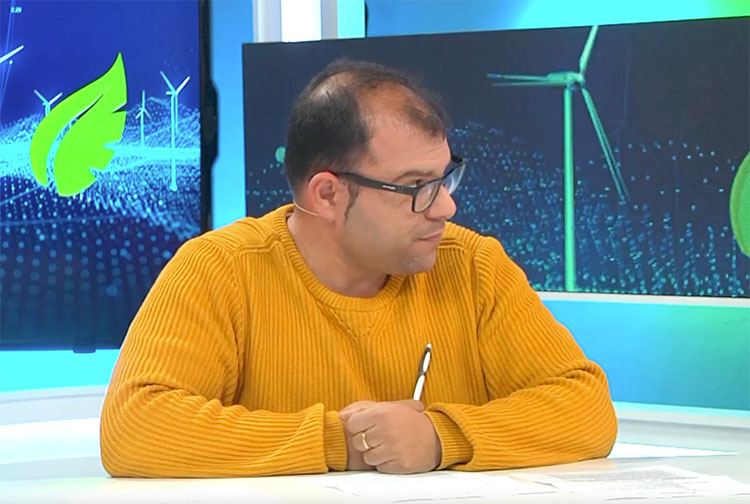

Banking and energy: a close relationship
According to data from the National Securities Market Commission (CNMV), banks have stakes in up to 174 companies in the energy sector. The percentage of shares held by these financial institutions ensures that they have decision-making powers on Boards of Directors and Shareholders’ Meetings.
Large banking institutions have stakes in many energy companies through shares or directorships in key management positions, which allows them to influence the management of these companies and the way in which the management of the energy transition takes shape.
CaixaBank is one of the most active banks in this sector, participating in companies such as Naturgy and TotalEnergies. In the case of Naturgy, CaixaBank was a majority shareholder of Repsol until 2019. The financial institution maintains its control over these companies through CriteriaCaixa and has directors in key positions in the energy companies.
For its part, Bankia also has members on the boards of Red Eléctrica de España, while Banco Santander has stakes in companies such as Endesa in Chile, Técnicas Reunidas and ENCE Energía & Celulosa. Banco Sabadell also has a significant presence in the energy sector, with board members in Repsol, ENCE Energía & Celulosa and Enagas.
Conflict of interest
Bearing in mind that the energy crisis has sent the price of energy soaring and, therefore, the profits of these companies – big banks and the main energy companies have accumulated more than 64,000 in profits during the three years of pandemic and inflationary crisis – it is difficult to justify those who are allergic to public intervention in these economic sectors.
It is interesting that the same actors opposed to government intervention seem to have no problem in perpetuating and justifying the revolving doors. A profitable business, which, by signing former presidents and ministers onto the boards of banks and energy companies, has facilitated the electricity oligopoly in the Spanish energy market, preserving price manipulation at the expense of the consumer, and with extraordinary profits for these two sectors of the economy.
The solutions to the problems arising from the conflict of interests of the shareholders of these companies cannot be limited to one-off tax impositions on the financial and energy sectors after they have made extraordinary profits. If we want to eliminate the problem outright, perhaps we would do well to ask ourselves what is being paid for when a politician, with no relevant education or experience, is hired for a position in a bank or electricity company.
11Onze is the community fintech of Catalonia. Open an account by downloading the super app El Canut for Android or iOS and join the revolution!





Gràcies
En funció de les possibilitats de cadascú, s’ha de batallar cada dia.
Moltes gràcies pel teu comentari, Pere!!!
La subvenció a la benzina, majoritàriament, no ha acabat a les butxaques dels consumidors. El pitjor és que abans d’implantar aquesta mesura ja se sabia que seria així. En mercats no competitius passen aquestes coses.
Totalment d’acord amb el que dius, es varen apujar els preus de cop i les més beneficiades han sigut les petroleres. Moltes gràcies pel teu comentari, Josep!!!
Molt interesant!!!
Celebrem que t’hagi agradat i que ho hagis trobat interessant, Manel, i moltes gràcies pel teu comentari.
Molt bo l’article i molt bona pregunta al final d’aquest, és una autèntica vergonya que polítics sense cap mena d’estudis primer que tot ocupin càrrecs a les grans empreses com en els bancs, quant hi ha molts joves amb molts més estudis i carreres i tenen que treballar amb uns sous que amb prou feina donen per viure
Quina vergonya Miquel, el món del poder és així. En algunes famílies, els joves ni tan sols creuen que hagin d’estudiar o esforçar-se. A més solen ser persones educades per seguir cegament indicacions sense preguntar ni verificar-ne les conseqüències. Pastisser als seus pastissos com diuen per allà!
Gràcies, Jordi!!!
D’acord.
Són sectors estratègics que influeixen amb un alt percentatge en el benestar de la gent, però refiar-se només de la intervenció governamental no serà garantia de qualitat i de servei. La honestedat dels governs de torn queda molt en entredit quan pel sol fet d’analitzar detenidament les factures de les energètiques demostra que la majoria de vegades fan veure garses per perdius.
Totalment d’acord Mercè, falten empreses compromeses i accionistes raonables! Ja és massa que tota la responsabilitat recaigui sobre els consumidors. Una part si que podem canviar-la nosaltres, però les organitzacions públiques que ens representen haurien d’intervenir en aquests conflictes d’interessos. Però ja sabem què passa, oi?
Tot s’ho fan entre ells!! Hem de trencar aquestes dinamiques, l’oligopoli d’aquest país i les maneres de der dels dirigents
Sembla que és possible, però caldrà batallar!